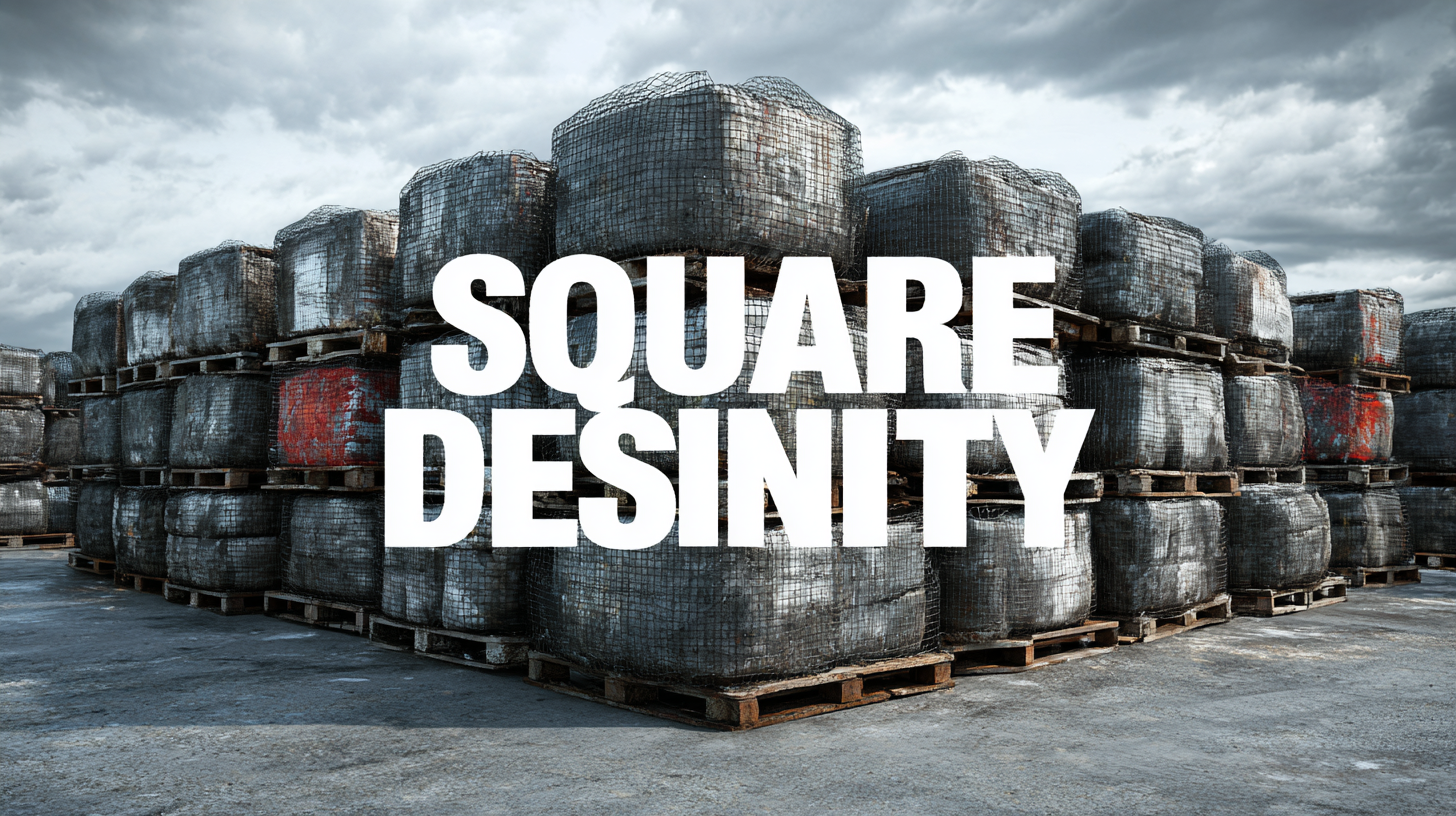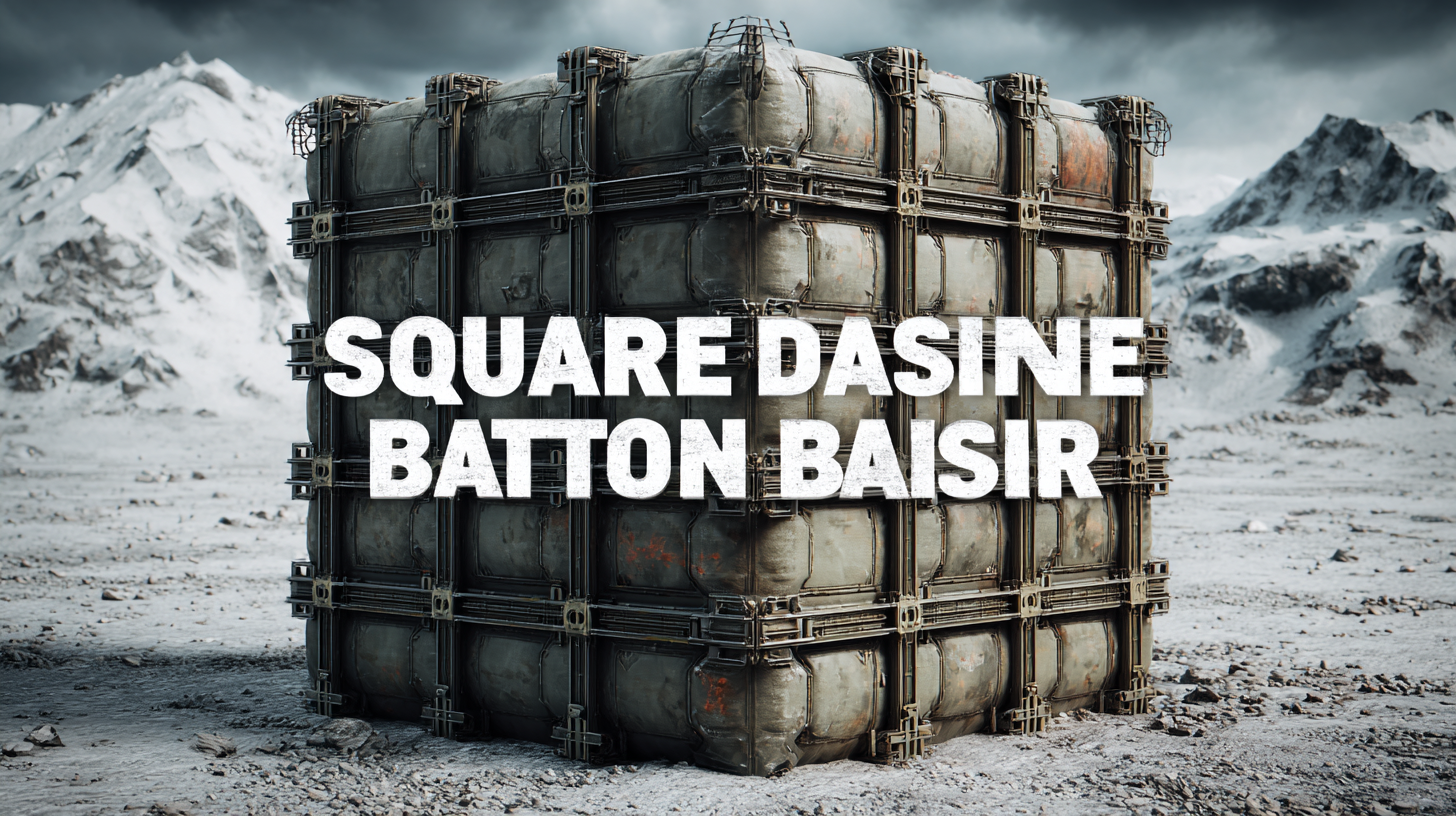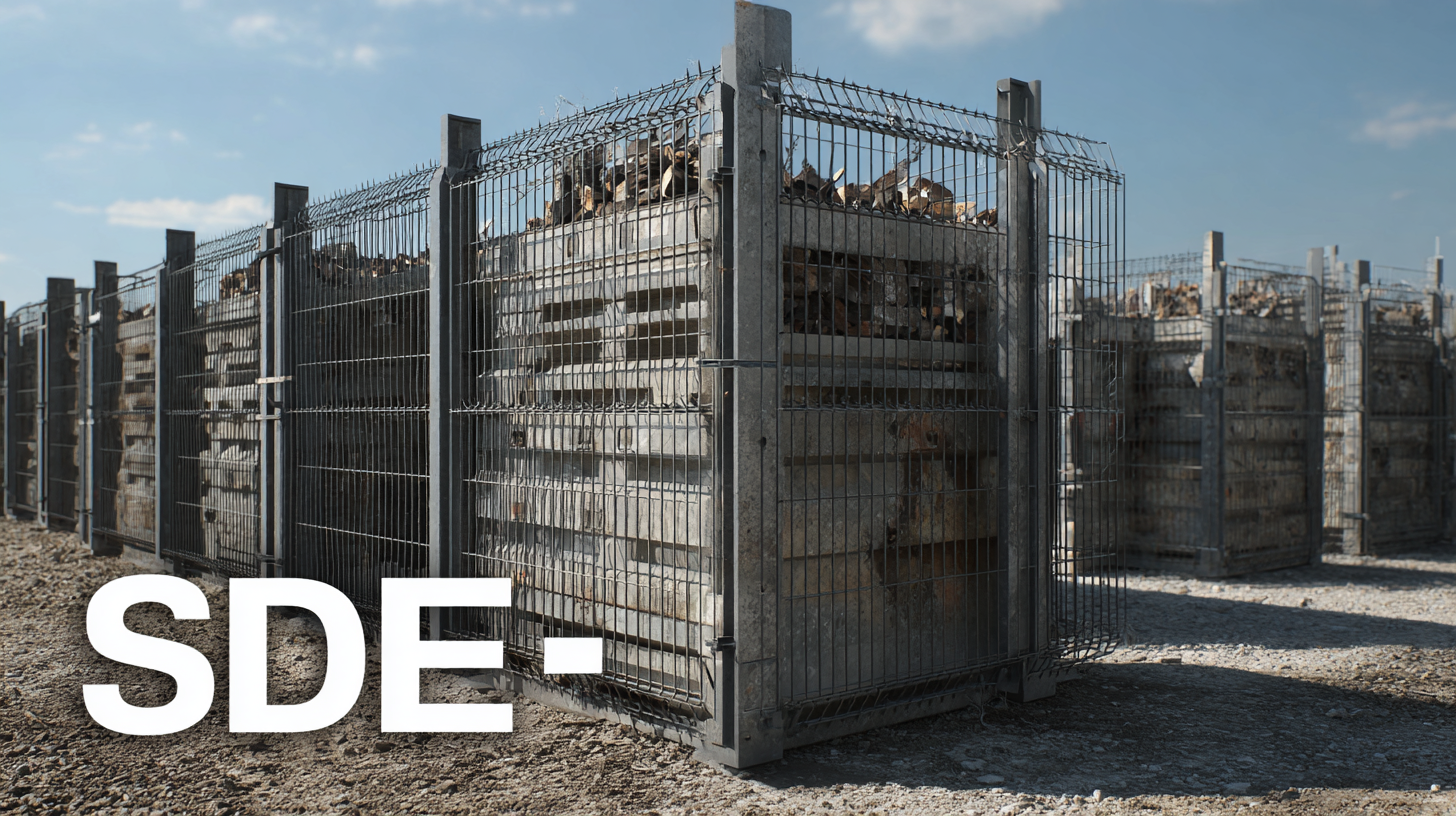Leave Your Message
-
Telephone
-
WeChat/ WhatsApp
-
Email
In today's increasingly complex security landscape, finding the right suppliers for your Square Defensive Bastion Barrier solutions is crucial to ensuring both safety and effectiveness. These barriers are designed to provide robust protection against a variety of threats, making them a vital component of military and critical infrastructure defense strategies. However, with myriad suppliers claiming to offer the best products, how can you discern quality and reliability? This blog will explore key strategies to identify and evaluate suppliers who can deliver top-tier Square Defensive Bastion Barrier solutions. We will dive into essential factors such as quality certifications, industry reputation, and customer reviews to help you make informed decisions that will enhance your security measures. Whether you are a procurement officer or an operations manager, understanding how to identify quality suppliers can be the difference between a fortified defense and a regrettable compromise.

When selecting square defensive bastion barriers, understanding the key performance indicators (KPIs) that will define their effectiveness in 2025 is crucial. KPIs should include durability, adaptability, and cost efficiency. Durability assesses how well these barriers can withstand environmental conditions and potential threats over time. Adaptability refers to the barrier's ability to be modified or upgraded as threats evolve, ensuring that it continues to provide robust security. Cost efficiency evaluates how well the investment in these barriers balances with their long-term performance and maintenance costs.
Tips: When evaluating suppliers, ask for case studies or performance data that showcase their barriers under varied conditions. This practical evidence can help you gauge durability and resilience. Additionally, ensure that the supplier provides clear information about future upgrade options and compatibility with other systems, which is essential for maintaining the effectiveness of your defensive solutions.
Another important KPI is ease of installation and deployment. The quicker you can set up these barriers, the better your response capability will be in high-pressure situations. Assessing the logistical support that suppliers offer will also play a critical role in your decision-making. Seek out partners that can demonstrate not only high-quality products but also comprehensive support services. This holistic approach will enable you to secure the most reliable square defensive bastion barriers for your needs.
In today's competitive landscape, identifying quality suppliers for square defensive bastion barriers requires a keen understanding of market trends and consumer demand projected for 2025. With innovations like artificial intelligence and machine learning enhancing product efficiency, suppliers need to stay ahead of technological advancements to meet consumer expectations. By analyzing market growth in related sectors, we can glean insights into the direction defensive barrier solutions are heading.
Tip 1: When evaluating potential suppliers, look for those who are integrating advanced technologies into their production processes. Suppliers that utilize AI and ML in their systems often yield better performance and reliability in their products.
Tip 2: Stay informed about industry positioning and market shifts. With the projected increase in demand for defensive solutions, identifying suppliers that position themselves well within rising markets can ensure a steady supply chain.
Tip 3: Pay attention to consumer trends regarding safety and security measures. As awareness rises, suppliers that adapt to these changes in consumer behavior will likely offer more effective and desired solutions.
When evaluating suppliers for square defensive bastion barriers, it’s crucial to conduct a comparative review of the top players in the industry. This process not only highlights their strengths but also uncovers potential weaknesses that could impact overall project success. For instance, some suppliers may boast cutting-edge technology in barrier manufacturing, providing enhanced durability and protection. Others might excel in customer service or rapid deployment capabilities, which are equally important in mission-critical situations.

However, it's essential to remain cautious as you delve deeper into the strengths and weaknesses of each supplier. The selection process should include factors like cost, scalability, and compliance with safety standards. As industries pivot toward increased safety measures, particularly in uncertain economic landscapes, identifying suppliers who can adapt and innovate will be key. This reflection has become even more significant as various sectors, such as those in regions affected by recent economic shifts, seek reliable partners to ensure a secure and resilient future.
Emphasizing robust supplier relationships can help businesses navigate challenges and remain competitive in an evolving market.
When investing in square defensive bastion barrier solutions, evaluating cost-effectiveness and return on investment (ROI) is paramount. Organizations must first analyze the upfront costs associated with different suppliers and their products. This includes not only the price of the barriers themselves but also installation, maintenance, and any additional features that could enhance security effectiveness. By comparing these costs against potential risks and losses that could arise from insufficient protection, decision-makers can determine which options provide the best financial value.
Moreover, a thorough assessment of the long-term benefits is crucial for understanding ROI. High-quality barriers may come at a higher initial price, yet their durability and effectiveness can lead to lower maintenance costs and fewer security breaches over time. Furthermore, investing in reliable suppliers that offer warranties and support can greatly enhance the overall value proposition. Evaluating customer testimonials and case studies can provide insights into how these barriers perform in real-world applications, allowing businesses to make informed decisions that justify their investment in bastion barrier solutions.
| Supplier Criteria | Evaluation Metric | Cost-Effectiveness Rating | ROI (%) |
|---|---|---|---|
| Material Quality | Durability Test Score | 8.5 | 15% |
| Timeliness | On-time Delivery Rate | 9.0 | 18% |
| Customer Service | Customer Satisfaction Score | 8.0 | 12% |
| Pricing | Market Competitiveness | 7.5 | 10% |
| Certifications | Industry Standards Compliance | 9.5 | 20% |
As the demand for robust defensive solutions grows, evaluating technological advancements in barrier design and materials has become crucial. By 2025, innovations in manufacturing processes, such as 3D printing and advanced composite materials, are expected to reshape the landscape of barrier construction. These techniques not only enhance the durability and impact resistance of square defensive bastion barriers but also allow for customization tailored to specific environmental challenges. With a focus on lightweight yet robust materials, suppliers who stay ahead of these trends will deliver solutions that are both effective and efficient.

Furthermore, the integration of smart technologies into barrier designs is another key area of development. Sensors and real-time monitoring systems can be embedded within barriers to provide immediate feedback on structural integrity and potential threats. This proactive approach to security will likely transform how facilities engage with their protective measures. Suppliers who embrace these innovations will not only meet the growing expectations for safety but also position themselves as leaders in a competitive market, allowing clients to invest in solutions that are future-proof and adaptable.


